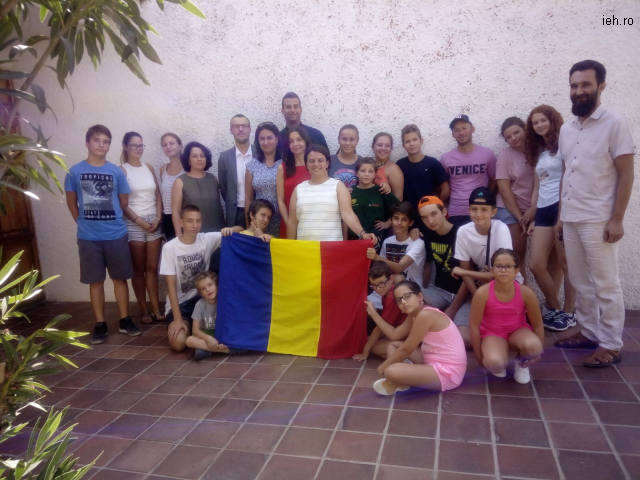Eurozone — Romania, one of the fastest growing European Union members, may join the euro zone in 2022, once the incomes of its poorest citizens rise, Reuters quoted foreign minister Teodor Melescanu as saying in an interview with Polish Rzeczpospolita daily. The Romanian official also said that in spite of the fact that Romania already meets all formal requirements, joining the currency union sooner would have a negative effect on the poorest categories of citizens. Romania is one of the fastest growing economies within the European Union, with gross domestic product expected to expand by 5.5-5.6 percent in 2017, according to Melescanu. At the same time, the country is still one of the poorest EU members. The euro zone consists of 19 members. The latest one, Lithuania, joined the club in 2015.
Education— Romanian Prime Minister Mihai Tudose met on Monday with representatives of the education trade unions to discuss a number of major issues in the education field. Approached at the meeting were topics such as the drawing up of a national education law, the outdated school curricula and the system’s under financing. At the end of the talks, the PM promised that the staff in the education field would receive this year the salary increases they won in Court. According to Eurostat, in 2015 Romania ranked last in the EU in terms of amounts spent for education.
Cantacuzino Institute — The Cantacuzino Institute in Bucharest, which has a strategic role in ensuring Romania’s independence in the field of vaccine production, needs to become functional again, and for that to happen, the institute will be tuned into a military unit. This statement was made by Mihai Tudose who called on the defense and healthcare ministers to draft, in one month’s time, a bill on the subordination of the Cantacuzino Institute to the National Defense Ministry. The PM recalled that the Institute, set up in 1921, is a Romanian brand with a history of almost 100 years and with many achievements. Before 1990, the Cantacuzino Institute had a substantial portfolio in terms of vaccine production, but later, due to lack of funds, bad management and the failure to observe the norms imposed by the WHO, production was stopped for all vaccines.
Washington — A Romanian-born lawyer living in California, Andrei Iancu, was nominated by President Donald Trump as Undersecretary with the Trade Department in charge of intellectual property and as director of the United States Patent and Trademark Office. Andrei Iancu is currently a lawyer with the American firm Irell & Manella LLP, where his activity focuses on intellectual property issues, a White House communiqué shows. He defended clients from various industries and pleaded before the United States Patent and Trademark Office, of the US International Trade Commission and other courts. According to the communiqué, Andrei Iancu wrote and delivered speeches on issues related to intellectual property and taught Patent Law at the University of California, Los Angeles.
Protests – Several thousand Romanians protested on Sunday evening in Bucharest and other big cities of Romania against the bill for the modification of the justice laws proposed by the Justice Minister Tudorel Toader. Protesters asked for the resignation of the justice minister, chanted slogans in support of the independence of the judiciary and announced that next Sunday they will organize similar protests. The leader of the Social Democratic Party (the main ruling party) Liviu Dragnea told the participants that the draft law was nothing but a proposal and that it needed to be seriously debated first. Sharply criticized by the opposition and the press, the draft law stipulates, among other things, that the president will no longer appoint the heads of the National Anti-Corruption Directorate (DNA) and the Directorate for Investigating Organized Crime and Terrorism (DIICOT), that the Judicial Inspectorate will be subordinated to the Justice Ministry and seniority will be increased for the promotion of magistrates. Early this year, the government’s attempt to amend, through emergency ordinance, the criminal codes, brought hundreds of thousands of Romanians into the streets in Bucharest and other cities of Romania as well as in the Diaspora. They accused the government of trying to help influential people from the political and administrative fields, accused of corruption, to avoid legal responsibility.
(Translated by Elena Enache)

